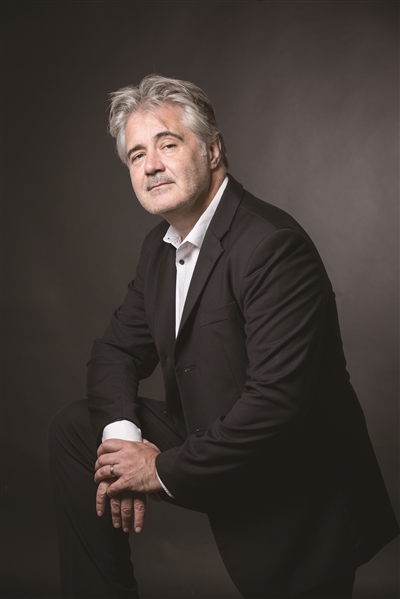
photo provided to Hangzhoufeel
Story
By Zhu Jingning
As the first light of the morning dawned on the West Lake, Christian Guellerin, the executive director of L'école de design Nantes Atlantique, was ready to set off for his most important moment in Hangzhou--the inauguration of the NACAA, the first Sino-French design institute in cooperation with the China Academy of Art.
Having been to different Chinese cities several times, Guellerin attaches great importance to Hangzhou for its urbanization. He has noticed how well the natural environment and plantation has been managed and has heard that it is one of the most famous economic centers in China where many startups started their entrepreneurial adventures. "This is a perfect combination of tradition and modernity. Hangzhou runs in its rapid economic development, but also retains its traditional and beautiful Chinese charm," he said.
The NACAA, with NA for Nantes Atlantique and CAA for China Academy of Arts, will run international Bachelor programs in Product, Interior Architecture and Digital and a Master of Design.
"It took two years of work to create this institute and we must salute the work of the entire CAA team in conditions made difficult by the pandemic." Guellerin expressed his gratitude on his social media. "L'école de design Nantes Atlantique is honored to have been chosen by this elite university to train high-level designers who are sure to occupy strategic positions in innovation."
Guellerin believes that the inauguration is significant for the field of design. Design involves many disciplines and is an expression of desire and the future world. In his view, the issues that should be designed and considered cover the range of society, economy, enterprises and artificial intelligence. The Joint Institute combines the outstanding faculty and the cultural strengths of both China and France to prepare students for a better world in the future.
Since 1998, Guellerin has been the Executive Director of L'école de design Nantes Atlantique, a private institution for higher education in design which was founded in 1988.
Guellerin was the President of Cumulus and is now the Honorary President of the International Association of Universities and Colleges of Art, Design and Media from 2007 to 2013. Cumulus is now the largest international network dedicated solely to issues of design education, with 3,100,000 students and nearly 30,000 teachers. Under the presidency of Guellerin, it has seen significant growth, particularly in countries outside Europe.
Guellerin is also regularly invited as a keynote speaker in international events on creation, design and innovation.
More recently, he lectures on management, motivation and creativity in several French and international institutions.
He claimed his manifesto for a design school -- The Desire to Build a Simpler World, during his first class at the NACAA. He has a firm faith that designers should not only know aesthetics and the customers' needs, but also have a strong sense of social responsibility, with the ability to adapt to the new trends, such as artificial intelligence in the digital age. They shall constantly innovate and strive for excellence in design for a better life of human beings.
Just as Guellerin wrote on the top page of his social media: there should be nothing between design and life -- designing makes things alive. Designers cannot be replaced by the AI, but be complementary to and compete against it.
A student surnamed Fan, who was present in the class, still remembered the words Guellerin emphasized many times: Remember where you come from before you become someone. It is a quote from a writer in Guellerin's hometown Brittany that he thinks is applicable to design as well.
During President Macron's visit to China, Guellerin was informed that higher education is said to play a very important role in the exchanges between China and France, and that they will further strengthen education in this field. From his perspective, in the future, not only French students, but more international students from other countries will come to study and exchange in China, and even to conduct internship activities in local Hangzhou enterprises.
